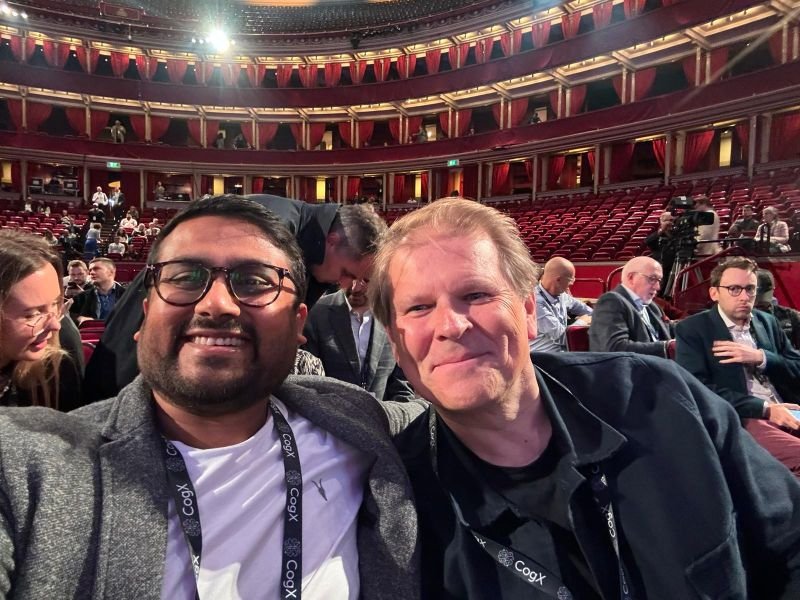There seems to be a lot of chat right now around demonstrating the business impact of marketing (has it ever been any different?!) with the added twist of CMOs becoming “commercial marketers”. I’ve already written about what I think this means but in a recent interview I was asked “What advice would you give to future CMOs on becoming a commercial marketer?”.
For me, the journey involves a combination of strategic career moves, continuous learning, and honing a diverse skill set. So, after some thought, I came up with 8 tips:
1. Master the Fundamentals of Marketing
Deep Dive into the Basics: Some things never change (part 1). Understanding the core principles of marketing—market research, product positioning, customer segmentation, brand building, and channel management—is essential. Solid knowledge of these fundamentals will be critical as you grow into more senior roles.
2. Embrace Data-Driven Decision Making
Understand the Metrics: Marketers should develop a strong understanding of KPIs and metrics that matter in marketing—like customer lifetime value (CLV), return on marketing investment (ROMI) and customer acquisition cost (CAC). And put them front & centre in every conversation, presentation and review.
Learn Analytics Tools: Familiarity with marketing analytics tools (Google Analytics, HubSpot, or any data visualization platforms) will enable you to make informed decisions and demonstrate your impact on the business.
3. Cultivate Cross-Functional Skills
Financial Acumen: Since CMOs are held accountable for budgets and ROMI, it’s important to understand financial principles. Learning the language of finance will help you align marketing strategies with business objectives.
Sales Collaboration: Build strong relationships with the sales team. As marketing often works hand-in-hand with sales to drive revenue, understanding sales processes and how marketing supports lead generation and conversion is key.
Broaden Exposure: Work on cross-functional projects to understand the interconnectedness of marketing with product, technology, and operations teams. Join sales calls, sit in on SDR/BDR activity. A CMO needs to be a business leader, not just a marketing leader.
4. Build a Diverse Marketing Skill Set
Customer-Centric Mindset: Some things never change (part 2). Always put the customer at the heart of your marketing strategy. Great marketers understand the customer journey and leverage customer insights to create personalised experiences. Speak to customers at events, running surveys and getting involved with writing case studies are easy ways to get started.
Channel Versatility: Experience across all channels, online and offline is essential. At least know the basics of paid media, how the different social media platforms work, what’s involved in running events, how your business partnerships are structured and the landscape of moden media relations, will allow future CMOs to create integrated marketing strategies.
5. Develop Leadership and Communication Skills
Learn to Lead Teams: Aspiring CMOs need to cultivate leadership skills early. Seek opportunities to manage projects and lead teams, even if informally. This will help develop decision-making, delegation and motivational skills.
Effective Communication: A CMO communicates not just within the marketing team but with the entire organization and external stakeholders. Developing excellent written and verbal communication skills is a must. Use AI to brainstorm ideas for written communications, take every opportunity to present your ideas to others. Start with your immediate team if that seems daunting!
6. Be a “Learn-It-All” not a “Know-It-All”
Be a lifelong learner: Learning never stops. Marketing evolves rapidly. Continuously learning about new marketing trends, tools, and technologies is critical. Read industry reports, attend third party events, and stay active in professional networks. Hire smarter people than you. Learn from them
Embrace Change: The ability to adapt quickly to market shifts, new technologies, and customer behaviours will distinguish successful marketers from others. Flexibility and innovation are key traits of CMOs. Take a “Growth Mindset” - change your behaviour from seeing changes barriers to opportunities to adapt. It sounds woolly(!) but you need to put in the work!
7. Network and Seek Mentorship
Find a Mentor: Having a mentor, especially someone in a CMO or leadership role, can be invaluable. A mentor can provide career guidance, help with decision-making and offer insights based on their experience.
Build a Strong Network: Networking with professionals within and outside the marketing field can open doors to opportunities, provide inspiration and help you stay on top of trends.
8. Be Entrepreneurial
Own Your Career Growth: CMOs often have an entrepreneurial mindset, always looking for innovative ways to grow the business. Cultivating this mindset—thinking outside the box, taking initiative, and being proactive—can accelerate career growth.
Take Risks: Junior marketers should not be afraid to step outside their comfort zone and take on challenges. Learning through experiences—both successes and failures—will shape you into resilient and adaptable leaders.
So there we have it. Not exhaustive I’m sure, but hoping it helps!











